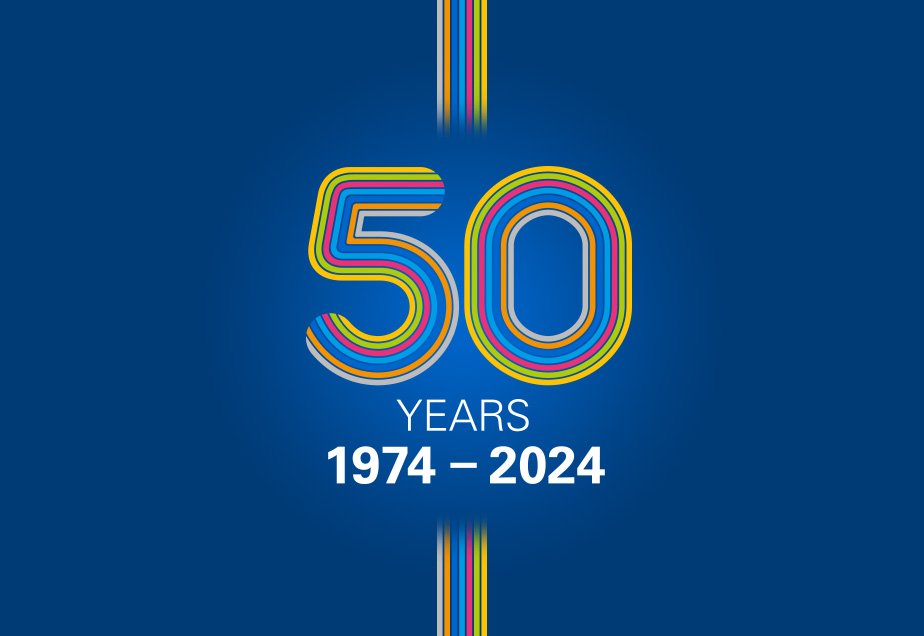- Home
- News & articles
- Company News
- The 70s where it all began
The ’70s – where it all began
Picture it, Houston, March 1974. Sunshine on My Shoulders by folk-pop legend John Denver, is at number one in the US charts, Congress concludes that Richard Nixon is involved in the Watergate scandal and Edward Heath resigns as Prime Minister of the UK.
While all of this is happening, Stephen Way, a former Lloyd’s broker from Southend in England, founds a new insurance company – Stephen L. Way International. This is the opening chapter in the incredible story of the Houston Casualty Company (HCC), or as it’s known today, Tokio Marine HCC.

This may not have been the most opportune moment to start a new insurance company…
In many respects, economic conditions in the 1970s were very much as they are today, with high national deficits, low interest rates, rapidly increasing energy prices and the collapse of managed currency rates leading to the simultaneous appearance of slow global economic growth and high inflation. All of these elements certainly could have conspired to destroy a fledgling business, but Stephen’s timing, as it turns out, was impeccable.
While economic conditions were challenging, HCC’s earliest specialism was aviation, an industry that underwent a revolution in the 1960s and 70s with the introduction of the Boeing 747 jumbo jet and widebody aircraft.
These innovations democratised air travel and HCC was well positioned to ride the wave of popular air travel. Following the oil crisis in 1973 and with the increased commercialization of the airline industry, governments around the world tightened their grip on the aviation sector, introducing stringent safety standards and operational regulations. All of this added a new dimension of risk for operators, a risk that HCC was prepared to manage for them.
Demand for insurance beyond aviation was growing and HCC’s risk appetite grew to meet that demand
As the 70s drew to a close and new approaches to risk management evolved, demand for new insurance products to be applied to new areas of risk was growing. However, this global growth in the insurance industry began to outstrip profitability, leading to insurers and reinsurers becoming increasingly reliant upon investment returns to make a profit.
In the face of this trend, HCC remained focused on technical underwriting to deliver profitability, using expertise in risk management rather than investment capability to grow. It was an approach that worked, and it was at this point that HCC developed the model that still exists today – apply technical excellence to complex risks to deliver consistent growth and profitability.
The 1970s also saw the very earliest measurements of humanity’s impact on the environment with the insurance industry evolving to meet demand for risk management in the face of an increasing number of natural disasters. This period saw the insurance industry begin to work much more closely with governments and global bodies to meet the challenge and again, HCC was at the forefront of this evolution in risk management.
HCC has always reflected the societies it lives in
As the insurance industry was grappling with social, economic and political crises, a rather obscure form of technology was about to go mainstream. In 1975, Bill Gates and Paul Allen founded Microsoft while Apple Computer Inc. was incorporated two years later by Steve Jobs and Steve Wozniak.
This technology, which was initially seen by many as a form of entertainment, was adopted relatively early by the insurance industry with many of the larger insurance agents (including HCC) employing ‘mini computers’ (most of which were actually the size of a refrigerator!). These new computers were employed to increase the automation of invoicing and accounting and these small, initial uses laid the groundwork for what has become the almost complete digitisation of the industry today.
And while technical excellence has always been the cornerstone of HCC’s success, the cultural landscape of the 1970s also had a profound impact on the business. The era was marked by a spirit of liberation and experimentation, with the civil rights movement making historic strides. These societal shifts shaped HCC and the early development of our inclusive and progressive workplace can be traced back to these formative years.
Of course, the late 70s quickly gave way to the 80s which is where we’ll pick this story back up in our next instalment coming soon!
You can find more about our 50th Anniversary celebrations here or read our previous blog post here.


